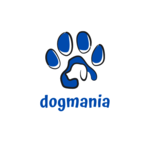Unveiling the Real Deal About Raw Feeding for Dogs: Separating Fact from Fiction
In recent years, the popularity of grain-free diets for dogs has surged, fueled by the belief that eliminating grains can lead to better health and well-being for our furry companions. However, amidst the marketing hype and anecdotal testimonials, it's essential to separate fact from fiction when it comes to canine nutrition. In this article, we'll delve into the truth behind grain-free diets for dogs, debunking the myth that grain-free equals healthier.
Understanding Grain-Free Diets:
Grain-free diets for dogs are formulated without common grains such as wheat, corn, rice, and barley. Instead, they often feature alternative carbohydrate sources like peas, lentils, chickpeas, and potatoes. Proponents of grain-free diets argue that dogs thrive on a diet that mimics their ancestral, carnivorous roots, free from grains and other potentially allergenic ingredients.
Debunking the Myth:
Myth #1: Grains Are Harmful to Dogs:
One of the primary arguments in favor of grain-free diets is the belief that grains are inherently harmful to dogs and can lead to allergies, digestive issues, and obesity. However, research suggests otherwise. The reality is that grains can be a valuable source of essential nutrients, including fiber, vitamins, and minerals, in a dog's diet. In fact, grains such as brown rice and oats provide beneficial dietary fiber that supports digestive health and regulates blood sugar levels.
Myth #2: Grain-Free Equals Healthier:
The notion that grain-free diets are inherently healthier for dogs is not supported by scientific evidence. While some dogs may thrive on a grain-free diet, others may experience adverse health effects. Recent studies have raised concerns about a potential link between grain-free diets and an increased risk of dilated cardiomyopathy (DCM), a serious heart condition in dogs. The U.S. Food and Drug Administration (FDA) has issued warnings about the potential risks of grain-free diets and DCM, prompting further investigation into this issue.
Myth #3: Allergies Are Always Grain-Related:
Another common misconception is that all food allergies in dogs are related to grains. While grains can be a source of food allergies for some dogs, they are not the only culprit. Proteins, such as those found in meats like beef, chicken, and fish, are also common allergens for dogs. It's essential to identify the specific allergen causing the reaction through proper diagnostic testing rather than assuming that grains are always to blame.
The Importance of Balanced Nutrition:
Rather than focusing solely on the absence of grains, dog owners should prioritize balanced nutrition when selecting a diet for their furry companions. A balanced diet should provide adequate levels of protein, carbohydrates, fats, vitamins, and minerals to support overall health and well-being.
Protein:
Protein is essential for muscle growth, repair, and maintenance in dogs. High-quality sources of protein, such as lean meats, fish, and eggs, should form the foundation of your dog's diet.
Carbohydrates:
Carbohydrates provide energy and fiber, supporting digestive health and regulating blood sugar levels. Opt for complex carbohydrates like sweet potatoes, peas, and lentils, which offer nutritional benefits without the need to eliminate grains entirely.
Fats:
Healthy fats are vital for maintaining a shiny coat, supporting brain function, and absorbing fat-soluble vitamins. Include sources of omega-3 and omega-6 fatty acids, such as fish oil and flaxseed, in your dog's diet.
conclusion
While grain-free diets for dogs have gained popularity in recent years, it's essential to approach them with caution and skepticism. Debunking the myth that grain-free equals healthier requires an understanding of canine nutrition and a focus on balanced diet principles.
Rather than making dietary decisions based on trends or marketing claims, dog owners should prioritize evidence-based practices that promote optimal health and well-being for their furry companions. By focusing on balanced nutrition and consulting with a veterinarian or a board-certified veterinary nutritionist, you can ensure that your dog receives the nutrients they need to thrive, regardless of whether their diet includes grains or not.



leave me your thoughts here